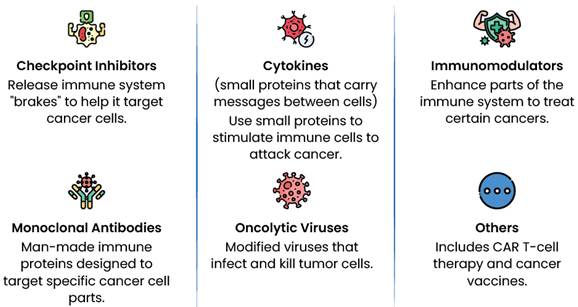- Courses
- GS Full Course 1 Year
- GS Full Course 2 Year
- GS Full Course 3 Year
- GS Full Course Till Selection
- Online Program
- GS Recorded Course
- NCERT (Recorded 500+ Hours)
- Polity Recorded Course
- Geography Recorded Course
- Economy Recorded Course
- AMAC Recorded Course
- Modern India, Post Independence & World History
- Environment Recoded Course
- Governance Recoded Course
- Science & Tech. Recoded Course
- International Relations and Internal Security Recorded Course
- Disaster Management Module Course
- Ethics Recoded Course
- Essay Recoded Course
- Current Affairs Recoded Course
- CSAT
- 5 LAYERED ARJUNA Mentorship
- Public Administration Optional
- ABOUT US
- OUR TOPPERS
- TEST SERIES
- FREE STUDY MATERIAL
- VIDEOS
- CONTACT US
Cancer Patients in UK to Receive Immunotherapy Drugs via Single Injection for Faster Treatment
Cancer Patients in UK to Receive Immunotherapy Drugs via Single Injection for Faster Treatment
07-05-2025

- The UK has introduced a faster method of administering Nivolumab, an immunotherapy drug, via a 15-minute injection, replacing the traditional hour-long intravenous (IV) drip.
- This new method is aimed at providing quicker treatment for cancer patients.
About Immunotherapy
- Definition: Immunotherapy is a type of biological therapy that utilizes the components of a person's immune system to fight diseases like cancer.
- Biological Therapy: Involves using substances derived from living organisms to target and treat cancer.
- Chemotherapy: In contrast, chemotherapy targets cancer cells directly but may also harm healthy cells.
How Immunotherapy Works
- Stimulating the Immune System: Immunotherapy encourages the immune system to work harder or smarter in recognizing and attacking cancer cells (e.g., Immunomodulators).
- Creating Immune System Components in a Lab: This method restores or enhances the immune system’s ability to find and destroy cancer cells (e.g., Monoclonal Antibodies).

Types of Immunotherapies
Advantages of Immunotherapy
- Precise: Targets cancer cells while sparing healthy cells.
- Dynamic: The immune system can adapt, launching new attacks if a tumor evades detection.
- Remembers: The immune system’s memory allows it to recognize and eliminate recurring cancer.
Disadvantages of Immunotherapy
- Less Effective: It is less effective for tumors with immune suppression and immune exclusion due to high selectivity.
- Variable Effectiveness: Its effectiveness varies, leading to uncertain patient survival rates and prognosis.
High Costs: Immunotherapy treatments are often expensive.



